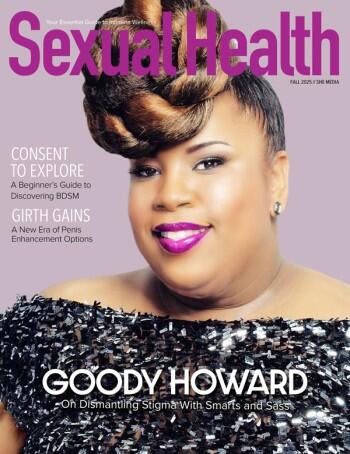While the Brit Awards have paved the way for gender inclusivity by introducing gender-neutral award categories, it has recently been confirmed that the British Academy of Film and Television Arts (BAFTA) awards will not follow suit. Instead, nominees will be forced to pick either male or female categories, and gender minorities will be overlooked entirely.
Performers such as Emma D’Arcy, Emma Corrin and Bella Ramsay have urged BAFTA to reconsider. There has also been massive backlash on social media, with gender rights activists dubbing BAFTA’s move — or lack thereof — “disappointing” and “nonbinary erasure.”
Gender-inclusive terms that focus more on a toy’s functionality are vital in building a robust and thorough marketing strategy that appeals to all kinds of customers.
In light of these events, those of us in the sexual wellness industry would do well to ask: How can we be more gender-inclusive?
Gendered Marketing Language and SEO
This question is complicated by the issue of search engine optimization. Most companies in the sector certainly have no desire to erase anyone. Nevertheless, sexual wellness brands must optimize for high-search-volume keyword terms that are usually heavily gendered — “best male sex toys,” for example. Indeed, this is an essential element of their marketing strategy.
Fortunately, there is a path forward — one that will enable us to shift our language to become more inclusive so we can build a more welcoming space for all. Let’s start by considering what it looks like when brands begin to wake up to the pressing urgency of using inclusive language and opting out of outdated gendered terms.
Sex toy retailer Babeland is a prime example of a brand that has pioneered gender inclusivity in sexual wellness. Its homepage navigation bar features terms such as “penis toys” rather than the traditional “male toys.” By focusing attention on the functionality of the products rather than the supposed audience, Babeland creates a more inclusive environment for its customers. The site can be navigated by searching for “vibrators,” “dildos” or “penis extenders,” accommodating purchases by customers of any gender. By remembering that not all men have penises, and not everyone with a penis is a man, Babeland acknowledges its trans and nonbinary customers rather than alienating them.
The more that gender-inclusive language is implemented, the more it will permeate the everyday lexicon — and search terms will reflect this evolution. The key is to remember that the process is additive. Retailers do not need to stop optimizing for common search terms such as “male sex toys,” since those who identify as male will be searching for this term. However, more gender-inclusive terms can be added in and used alongside older, more binary terms.
In fact, failing to do so would not just be insensitive to users who do not identify according to traditional norms, but would also constitute a marketing oversight. Gender-inclusive terms that focus more on a toy’s functionality are vital in building a robust and thorough marketing strategy that appeals to all kinds of customers.
When building a keyword list, marketers must have the perceived target audience in mind. For many in that audience, vocabulary descriptive of the object itself — including but certainly not limited to functionality, material and uses — will make for a much stronger sell than labeling toys “male” or “female,” terms that are not only outdated but also quite useless for indicating functionality or purpose. As our usage of language shifts over time, as is inevitable, terms like “penis toys” will become more common and therefore carry more weight in keyword lists.
Protecting Brand Reputation and Embracing Change for the Future
Another lesson that pleasure industry brands might glean from the BAFTA story concerns the impact of public perception. The British Academy of Film and Television Arts has long been a widely respected institution, but its reputation has now been tarnished by its reluctance to move away from an antiquated approach to gender.
A brand that listens to its audience and demonstrates its adaptability to change will always be favored by customers, while failing to react in a meaningful way to suggestions or feedback can damage a brand’s reputation. It is far better to avoid situations like this entirely, by being attentive, sensitive and responsive to your audience.
The bottom line: Embracing a robust and thorough policy toward gender inclusivity will not only help brands avoid backlash, but will be strongly welcomed by customers who may experience gender dysphoria from browsing through outdated descriptors or whose identities do not fit neatly within the gender binary.
The BAFTAs seem to be taking a willfully ignorant approach to gender inclusivity, at least for now, but among brands operating in the sexual wellness arena, we are seeing a clear shift toward gender-inclusive language. As human society evolves, both language and attitudes will constantly change. It is time to adapt so we don’t get left behind.
Scarlett Ward is the affiliate and influencer manager at Little Leaf Agency, a PR and communications agency dedicated to sexual wellness.








